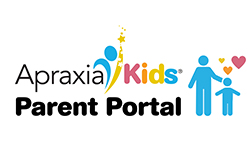Developmental-behavioral pediatrics is a subspecialty of pediatrics. As such, it functions with the orientation, beliefs, and practices of Western allopathic medicine. In this tradition, the practitioner gathers information about signs and symptoms and tries to explain them through a single over-riding diagnosis. In the process, the practitioner considers many diagnoses that might account for signs or symptoms and obtains additional history, expands the physical examination or conducts tests to determine which diagnosis is the best fit. Allopathic medicine became inextricably linked to the scientific process in the early 20th century. Since then, the causes and best treatments for conditions, whenever possible, are determined through rigorous scientific study.
The subspecialty of developmental-behavioral pediatrics aims to understand and foster the development and maintenance of optimal cognitive, social, and emotional functioning in children and their families. The developmental-behavioral pediatrician is typically consulted when children are not making expected developmental gains or when behavior does not conform to social expectations. The physician reviews historical, behavioral, physical, neurological, and environmental issues to find the best diagnosis. If testing is necessary to confirm or disconfirm a possibility, then the pediatrician orders (including genetic testing) and interprets the results. Unlike some disciplines of medicine (but similar to rehabilitation medicine) the goals of treatment in developmental-behavioral pediatrics are often improvements in functioning rather than total cure or prevention. The unique features in the child and family’s circumstances are considered in making treatment recommendations. Developmental-behavioral pediatrics prides itself on being a family-centered discipline.
A child should be referred to a speech and language pathologist for a comprehensive assessment of communication skills and for treatment of the communication disorders. The speech and language pathologist may make a diagnosis within the domain of communication (such as, dysarthria versus apraxia) but typically does not venture to integrate this diagnosis with findings in other domains of function and does not explore underlying genetic, neurological, or environmental causes. The speech and language pathologist monitors progress of treatment, again primarily within the domain of communication. Because of the complementary roles, in many cases of children with developmental delays and disorders, a team that includes a medical professional, such as a developmental-behavioral pediatrician, and a speech pathologist (as well as a psychologist, occupational therapist, or other rehabilitation experts) provides the best service. Given the current health care climate, sometimes this team functions sequentially rather than in the same place at the same time.
Let’s think specifically about children with suspected apraxia of speech. The clinician who makes this diagnosis must have a trained ear to analyze the sound patterns a child uses and compare them across multiple repetitions of the same word or phrase. Most pediatricians and neurologists do not have the training and experience to differentiate among speech disorders. At best, they may be able to differentiate language disorders from speech disorders and differentiate problems of voice or resonance from problems of planning and execution. Thus, a speech and language clinician should definitely evaluate the child. However, children with apraxia of speech frequently have other findings, such as delays in motor functioning, or other diagnoses, such as neurological disorders or autism. Speech and language pathologists typically do not have the training or experience to integrate findings across functional domains and to make the additional diagnoses. Therefore, a developmental-behavioral pediatrician should consider full spectrum of problems that a child faces to determine whether a more inclusive diagnosis than apraxia of speech is appropriate. The developmental-behavioral pediatrician can consider whether management or treatment strategies over and above speech and language therapy should be included for the primary or secondary concerns. Given that the developmental-behavioral pediatrician generally is not actually providing therapy for the child, she might be able to provide objective assessments of progress over time. Finally, children often evolve in their symptoms as they develop. Some children with dramatic communication deficits in early childhood become competent communicators by school age but develop attention or behavior problems. The developmental-behavioral pediatrician has a broad perspective to monitor the evolution of a child’s disorders.
by Heidi Feldman, MD, Ph.D.
Updated 11-1-19
Dr. Heidi Feldman, a developmental pediatrician, is the Ballinger-Swindells Endowed Professor in Developmental and Behavioral Pediatrics, in the School of Medicine, Stanford University. Additionally, she is the Medical Director of the Development and Behavior Unit at Lucille Packard Children’s Hospital. Dr. Feldman has published numerous articles in peer-reviewed journals in her collaborative research related to child language and is the recipient of numerous professional awards.
